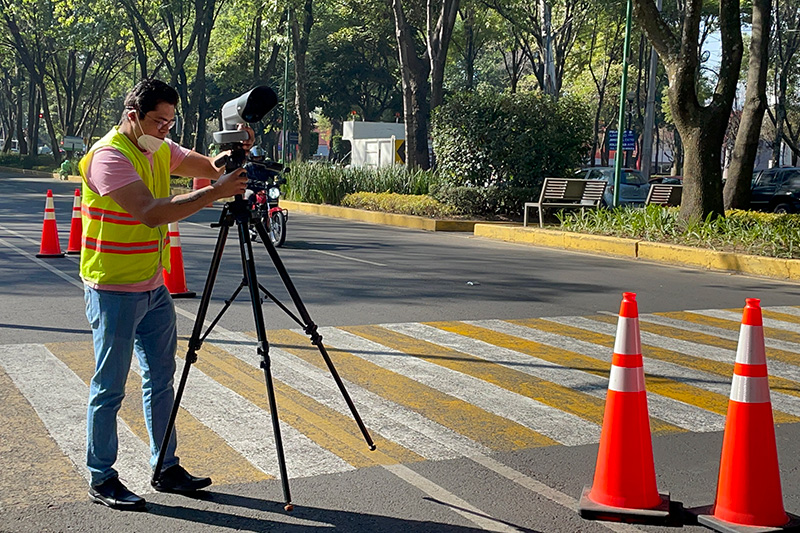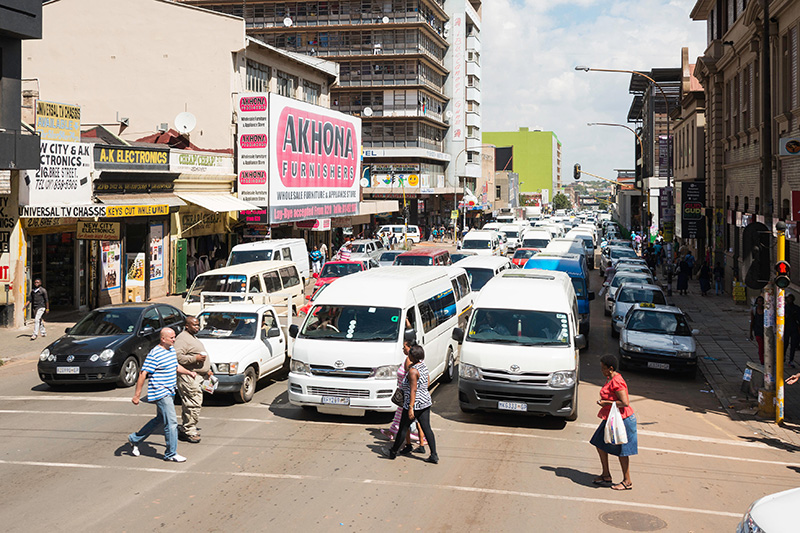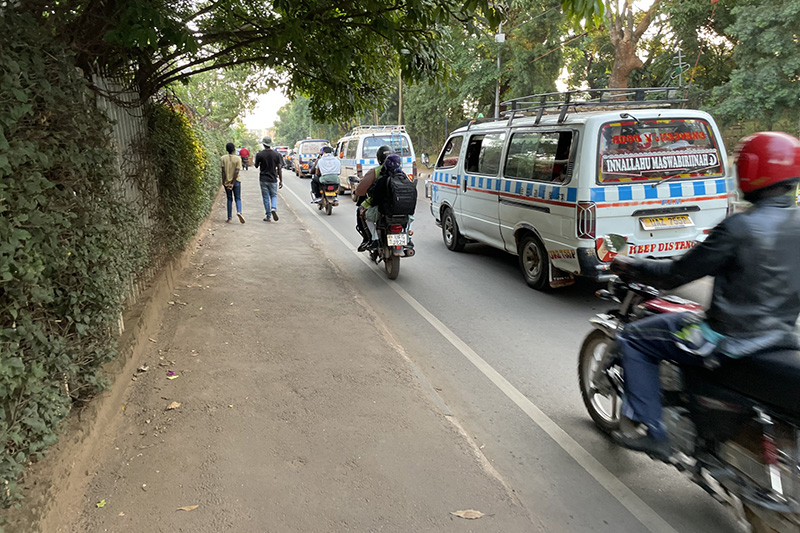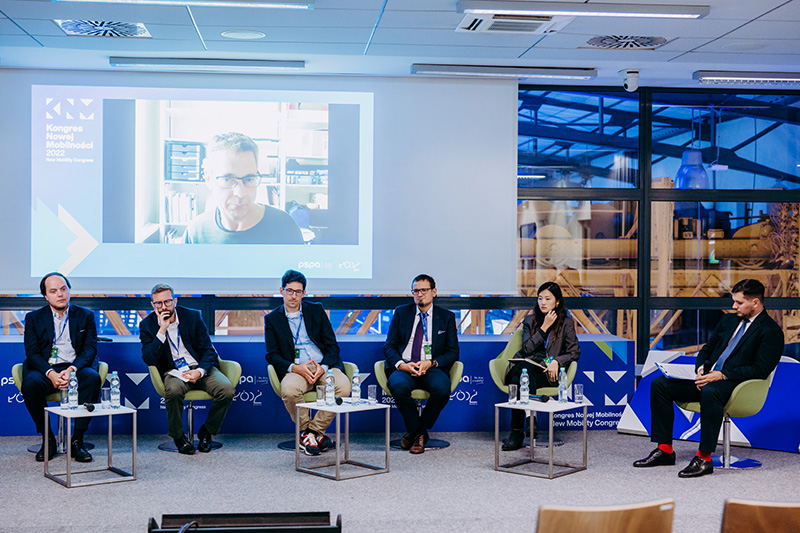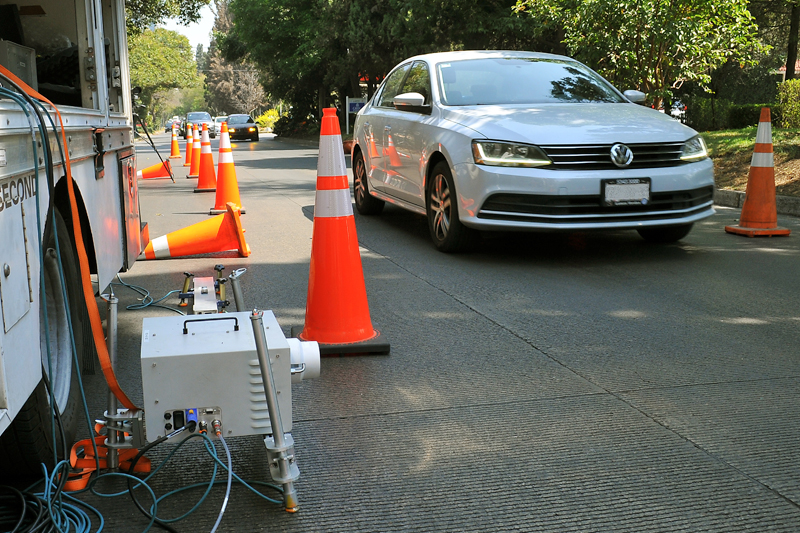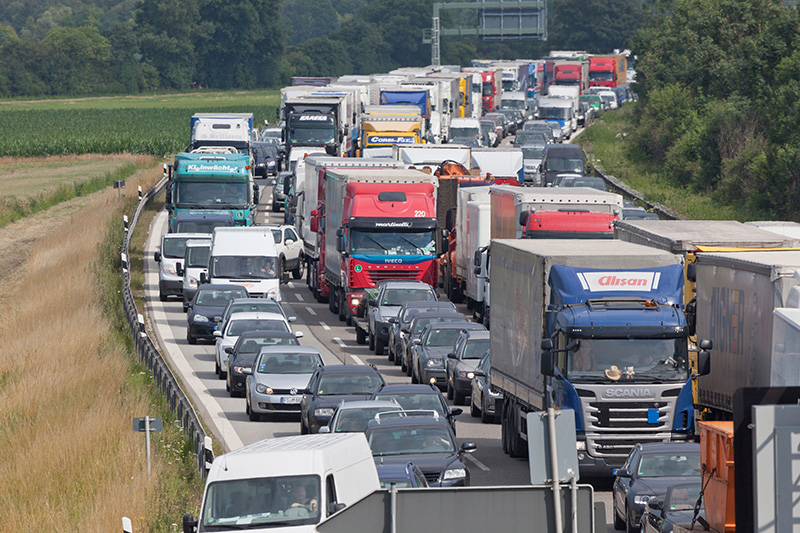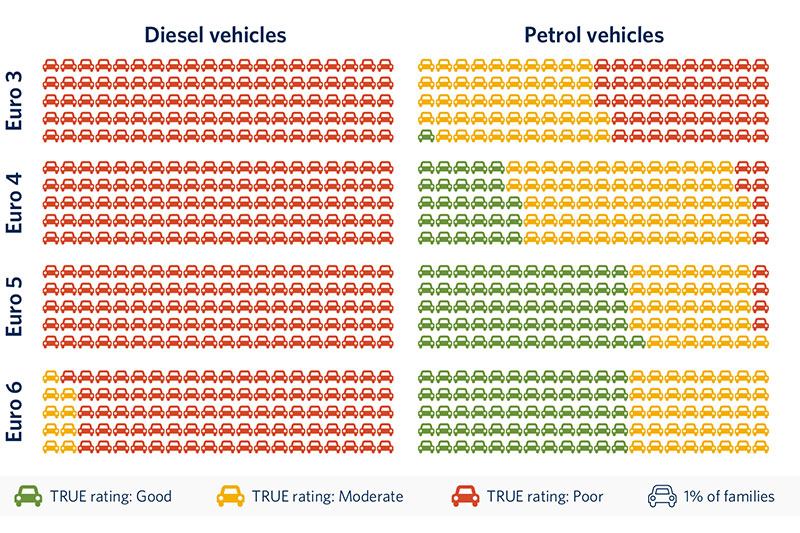TRUE Initiative supports design of NYC warehouse truck emissions reduction policy

A new project will quantify pollutant emissions associated with trucks operating out of New York City warehouses to support new air quality policies.
New York City has been exploring and implementing policies to reduce transport-related emissions across its five boroughs and improve air quality. The latest proposal explores the design and implementation of an indirect source rule (ISR) targeting the emissions from trucks operating out of warehouses across the city.
Emissions from vehicles operating out of the city's warehouses generate "indirect" pollution from their tailpipes. With a rise in e-commerce over the past decade, warehouses and distribution centers increasingly dominate industrial spaces in the city, and the associated rise in vehicle use is linked to rises in harmful pollutants.
Continuing the TRUE Initiative’s collaboration with NYC’s Department of Environmental Protection, this work will use real-world emissions data from its U.S. database alongside real-world traffic data to quantify emissions associated with warehouses of various sizes. This will produce key data points to help design a policy for the New York City landscape.
An ISR implements a compliance obligation for the warehouse to reduce overall emissions and offers options to meet targets, like transitioning the fleet to zero-emission vehicles, installing charging infrastructure, and investing in non-transport-related mitigation. The rule would help to improve air quality in the areas around warehouses, bringing health benefits to communities in these last-mile delivery neighbourhoods and nearby freight corridors. A new ISR would support the goals of the city’s strategic climate plan, PlaNYC: Getting Sustainability Done, which cited TRUE data from an earlier 2022 analysis and aims to "get dirty trucks off our streets." The TRUE analysis found that people of color are exposed to 17% higher levels of fine particulate matter air pollution from diesel trucks compared to white residents in the city.
While New York City would be the first city to adopt an ISR, a similar policy has been implemented in California in the South Coast Air Quality Management District, which is anticipated to help address the high levels of ozone air pollution in the region.
The TRUE Initiative also highlighted the importance of policies like the ISR through public testimony at a recent New York City hearing. Michelle Meyer, a researcher at the International Council on Clean Transportation, a TRUE partner, offered background and evidence supporting the potential benefits of an ISR. Of particular concern, recent research shows that NO2 levels are nearly 20% higher near warehouses, which are more likely to be in or near communities with large shares of racial-ethnic minority residents.
During her testimony, Meyer stated, "City-level policies are important in addressing the environmental justice issue of air pollution. Transitioning to cleaner and zero-emission trucks measurably improves air quality. An indirect source rule could be an effective way to reduce the health burden on communities of color that are exposed to the highest levels of harmful air pollution and improve overall public health."
Through this latest project, the TRUE Initiative continues its work to support cities across the United States in addressing health and environmental justice issues associated with diesel truck emissions. The results of this analysis, expected later this year, will provide New York City and other major metropolitan areas with the information needed to design and implement effective policies to clean up freight-related air pollution.
